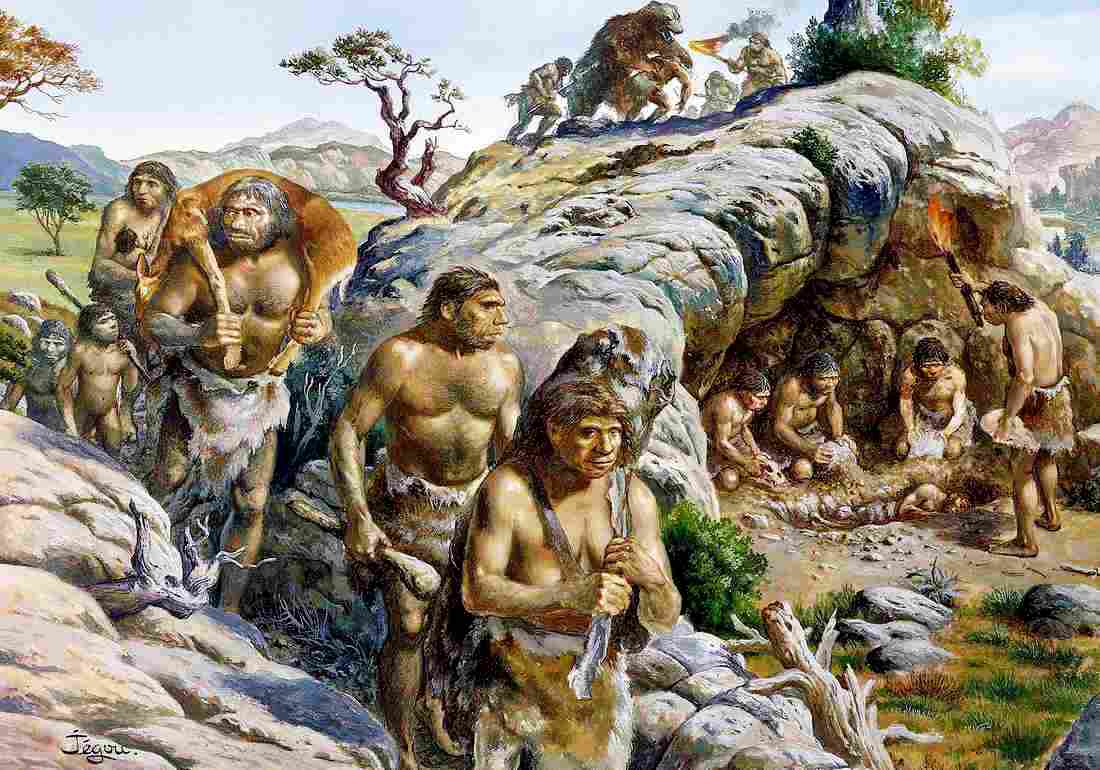Difference between revisions of "Palaeolithic Period"
Tao alexis (talk | contribs) |
Tao alexis (talk | contribs) |
||
| Line 2: | Line 2: | ||
The '''Paleolithic Period''' extends between 200,000 years ago and 12,000 <small>BC</small>. The Lower period reaches from 200,000 to 40,000 years ago; the Upper period begins after that. Through most of the Lower Paleolithic, only '''[[Human Race & Physiology|human race]]''' dwelt upon the game world's Earth, primarily in East Africa. Late in the Lower period, primeval '''[[Elf Race & Physiology|elves]]''' began appearing in the lands of Anduin, in the far extreme of Siberia, sometime between 50 and 45 thousand <small>BC</small>. | The '''Paleolithic Period''' extends between 200,000 years ago and 12,000 <small>BC</small>. The Lower period reaches from 200,000 to 40,000 years ago; the Upper period begins after that. Through most of the Lower Paleolithic, only '''[[Human Race & Physiology|human race]]''' dwelt upon the game world's Earth, primarily in East Africa. Late in the Lower period, primeval '''[[Elf Race & Physiology|elves]]''' began appearing in the lands of Anduin, in the far extreme of Siberia, sometime between 50 and 45 thousand <small>BC</small>. | ||
__TOC__ | __TOC__ | ||
| − | After the outset of the Upper period, it's believed — but not known for certain — that the first svirfneblin began to spawn beneath Europe between 30 and 27 thousand <small>BC</small>. Ten thousand years later, sometime between 20 and 18 thousand <small>BC</small>, scattered '''cave peoples''' began to appear in east central Asia, radiating outwards from the [[Kodar Mountains]] — bugbears, ogres and orcs ... then, some 15 to 14 thousand <small>BC</small>, hobgoblins, goblins and xvarts. | + | After the outset of the Upper period, it's believed — but not known for certain — that the first '''[[Svirfneblin|svirfneblin]]''' began to spawn beneath Europe between 30 and 27 thousand <small>BC</small>. Ten thousand years later, sometime between 20 and 18 thousand <small>BC</small>, scattered '''cave peoples''' began to appear in east central Asia, radiating outwards from the [[Kodar Mountains]] — [[Bugbear|bugbears]], [[Ogre|ogres]] and [[Orc|orcs]] ... then, some 15 to 14 thousand <small>BC</small>, [[Hobgoblin|hobgoblins]], [[Goblin|goblins]] and [[Xvart|xvarts]]. |
About this time, some 18 thousand <small>BC</small>, [[Dwarf Race & Physiology|dwarven]] cultures took shape and acquired life from the flesh of the Ymir, a primordial deity that was ancestor also to the "jotnar," or [[Giant|giants]]. Primitive forms of these humanoids arose more or less at the same time as the dwarves. | About this time, some 18 thousand <small>BC</small>, [[Dwarf Race & Physiology|dwarven]] cultures took shape and acquired life from the flesh of the Ymir, a primordial deity that was ancestor also to the "jotnar," or [[Giant|giants]]. Primitive forms of these humanoids arose more or less at the same time as the dwarves. | ||
== Human Culture == | == Human Culture == | ||
Revision as of 00:27, 18 August 2023
The Paleolithic Period extends between 200,000 years ago and 12,000 BC. The Lower period reaches from 200,000 to 40,000 years ago; the Upper period begins after that. Through most of the Lower Paleolithic, only human race dwelt upon the game world's Earth, primarily in East Africa. Late in the Lower period, primeval elves began appearing in the lands of Anduin, in the far extreme of Siberia, sometime between 50 and 45 thousand BC.
Contents
After the outset of the Upper period, it's believed — but not known for certain — that the first svirfneblin began to spawn beneath Europe between 30 and 27 thousand BC. Ten thousand years later, sometime between 20 and 18 thousand BC, scattered cave peoples began to appear in east central Asia, radiating outwards from the Kodar Mountains — bugbears, ogres and orcs ... then, some 15 to 14 thousand BC, hobgoblins, goblins and xvarts.
About this time, some 18 thousand BC, dwarven cultures took shape and acquired life from the flesh of the Ymir, a primordial deity that was ancestor also to the "jotnar," or giants. Primitive forms of these humanoids arose more or less at the same time as the dwarves.
